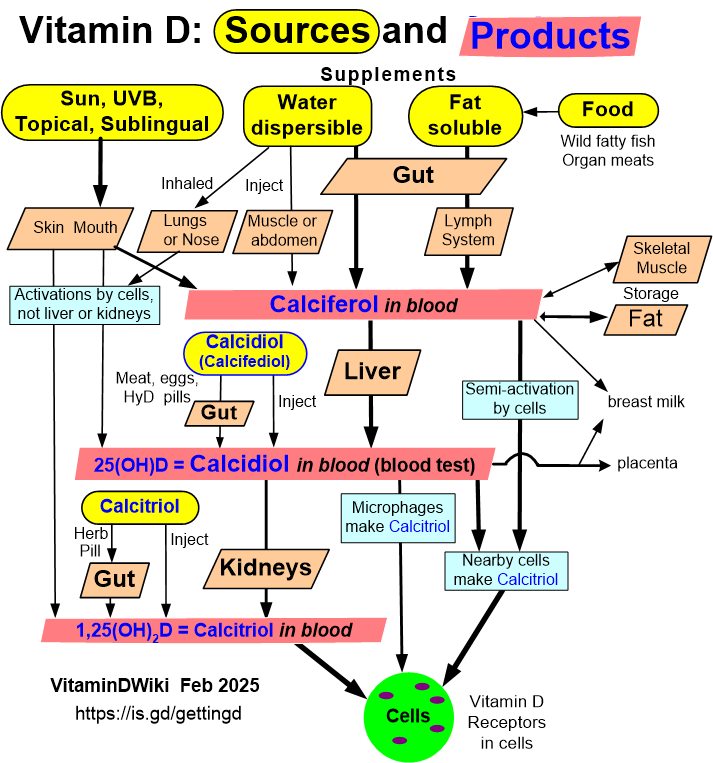Inflammatory Bowel Disease and Vitamin D review (needs 40-50 ng)
Role of Vitamin D in the Natural History of Inflammatory Bowel Disease
Journal of Crohn's and Colitis, jjy025, https://doi.org/10.1093/ecco-jcc/jjy025
Ole Haagen Nielsen Lars Rejnmark Alan C Moss
 ---
1. Overview Gut and vitamin D in VitaminDWiki contains the following summary__
{include}
1. Gut category listing in VitaminDWiki contains the following
{include}
1. # The Meta-analysis of Gut and Vitamin D
{category}
---
1. Overview Gut and vitamin D in VitaminDWiki contains the following summary__
{include}
1. Gut category listing in VitaminDWiki contains the following
{include}
1. # The Meta-analysis of Gut and Vitamin D
{category}
Inflammatory bowel disease (IBD), including ulcerative colitis and Crohn’s disease, is a chronic and unpredictable characterized by alternating periods of remission interspersed with relapses. In recent years accumulating support for an immunomodulating effect of vitamin D on both the innate and adaptive immune system has been presented. Through the vitamin D receptor, the active form of vitamin D, 1,25(OH)2D, induces antimicrobial peptide secretion, decrease dendritic cell activity, and promotes Th2 and regulatory T cell development and activity. In addition, vitamin D promotes an increased ratio of anti-inflammatory cytokines to pro-inflammatory cytokines. Studies in IBD point to a role for vitamin D in ameliorating disease outcome. Suboptimal circulating levels of 25-hydroxyvitamin D are common in IBD and appear to be associated with an increased risk of flares, IBD-related hospitalizations and surgeries, an inadequate response to TNF inhibitors, a deterioration in quality of life, as well as low bone mineral density. With only few available randomized double-blind, placebo-controlled studies investigating therapeutic effects of vitamin D related to IBD, further research is necessary to determine the true therapeutic potential of vitamin D, as well as defining its optimal range in serum to achieve and maintain quiescent disease. This review aims to summarize the latest knowledge on the extraskeletal effects of vitamin D in IBD, and outlines the potential deleterious consequences of vitamin D deficiency in this patient cohort.
